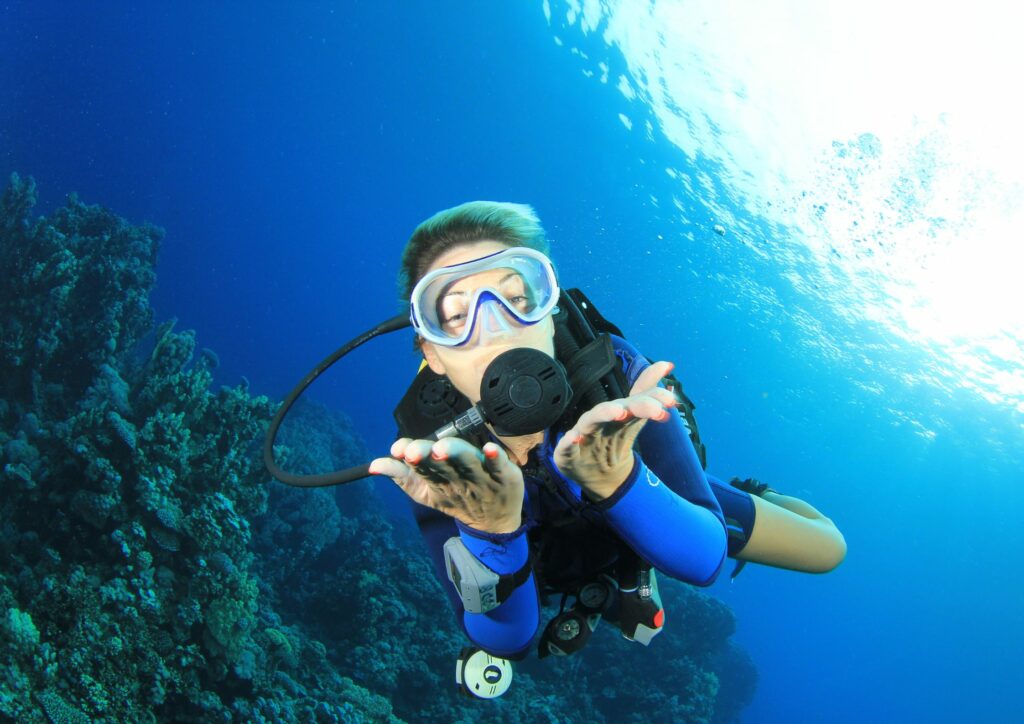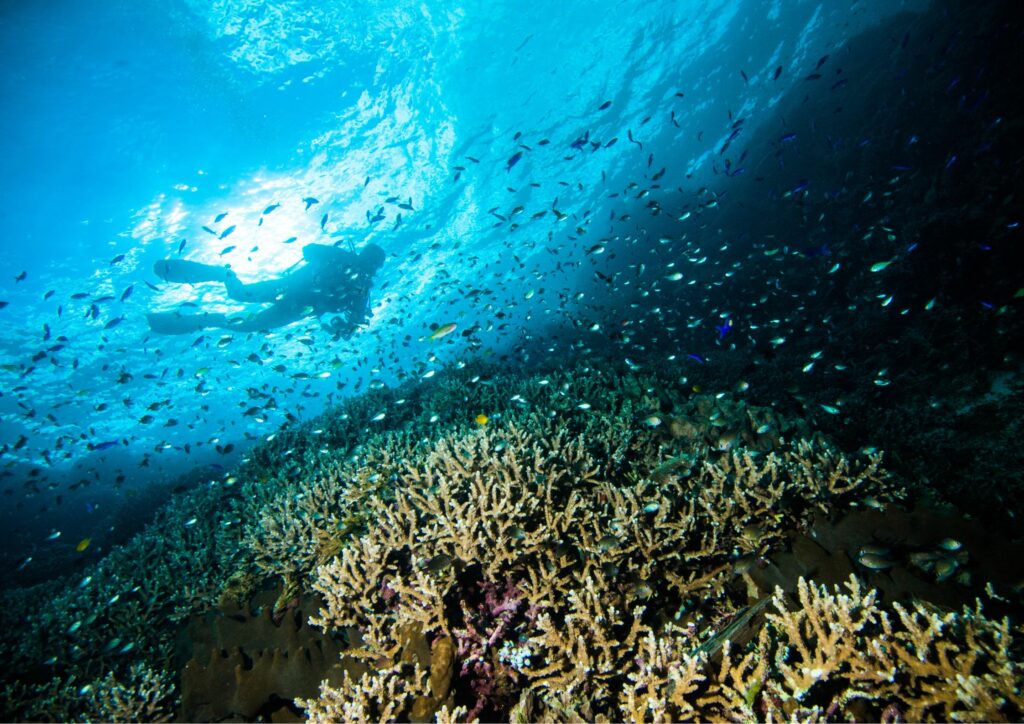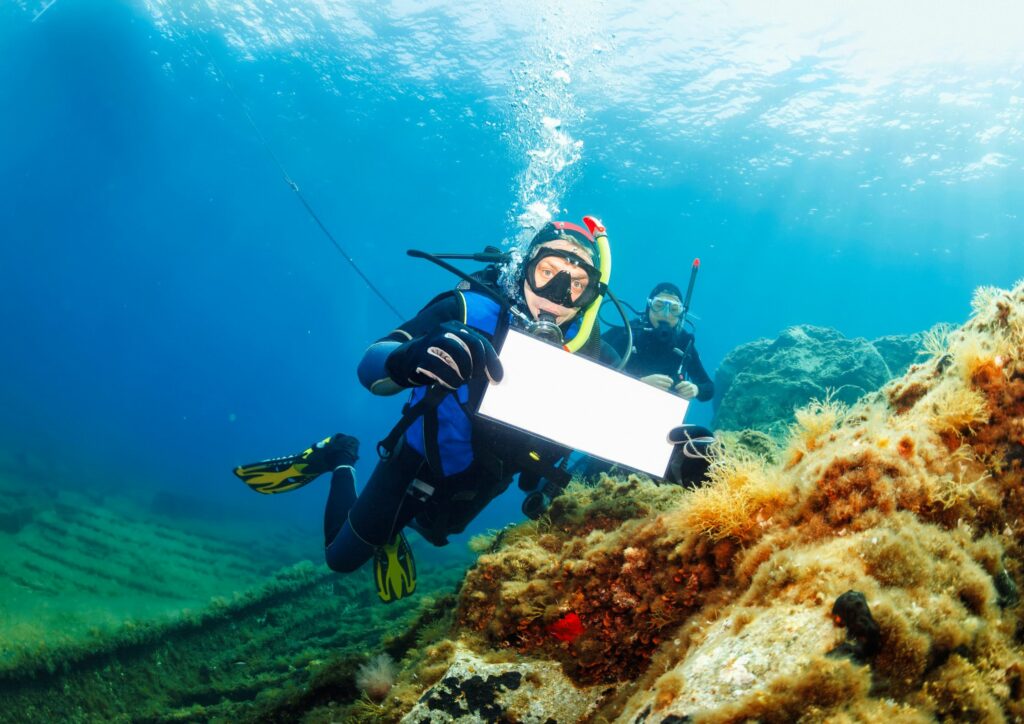Immersing yourself underwater diving, fluctuating between different pressure grades, all while maintaining your composure; sounds intimidating, doesn’t it? Fear not, diving isn’t an arcane hobby only for daredevils. In reality, it opens up a world teeming with vibrant marine life and soothing tranquility that’s unparalleled on land. However, as with every new pursuit, certain beginner scuba diving basics need to be learned. This post serves as your navigation compass, highlighting crucial beginner diving tips, dive safety advice, and common errors every diving novice should avoid.
Your First Dip: Learning to Dive
Diving, at first glance, may seem particularly daunting, evoking a mixture of wonder, excitement, and a trace of fear. However, with the rightful knowledge, guidance, and steadfast perseverance, it could very swiftly turn itself into a thrilling, inexhaustible adventure. Before embarking on this underwater journey, it’s advisable to thoroughly equip yourself through a comprehensive ‘learn to dive’ course.
This course entails extensive theory lessons, ample confined water practices, and experiential open water exercises. It provides you with the basic, yet essential, foundational elements of diving such as understanding buoyancy control, deciphering underwater signals, and mastering ascension and descension techniques. With these skills and knowledge at your disposal, you’re better prepared to delve deeper into your diving adventures, fostering a strong and robust foundation.
Understanding the Gear: Scuba Diving Basics

While diving can be an exhilarating experience, the intricate diving gear can appear intimidating at first. It’s fundamental not only to familiarize yourself with all the components of your diving gear but also to achieve a profound understanding of the functionality of the three primary diving tools – the mask, the oxygen tank, and the buoyancy control device (BCD).
The mask, akin to a window, offers you an uninterrupted, vivid view of the mesmerizing aquatic world. The oxygen tank is akin to your lifeline, providing you with the much-needed air supply to maintain underwater breathability. The BCD is your underwater controller, allowing you to effortlessly hover, descend, and ascend in the ocean. A thorough understanding and efficient utilization of your gear can bring a comforting sense of security and prevent beginner diver mistakes, enhancing your overall diving experience.
Prioritizing Safety: Diving Safety Advice

As satisfying and invigorating as diving can be, nothing can dampen the spirit like a preventable accident underwater. Therefore, the absolute priority should be on dive safety advice and best practices. Mastery of dive skills forms just a part of it. Pre-dive checks, for instance, enable you to validate your gear’s condition and readiness ahead of the dive. Regular communication, whether through gestures, signals, or touch, is essential to connect with your dive buddy, enhancing your mutual support system.
By careful monitoring of your equipment and air supply, you can ensure their optimal functionality. Maintaining an unhurried, controlled ascent is vital to avoid rapid pressure changes, which can cause decompression sickness. Safety measures, often regarded as theory, are actually best practices, distilled from the experience of countless dives around the world, carefully designed to keep divers secure and unharmed.
Avoid Common Errors: Tips for Beginner Divers
A novice diver brings a fresh perspective and enthusiasm to diving, yet along with it can come some common mistakes that can impede the diving experience. Rapid ascents can potentially introduce divers to a dangerous situation due to changes in pressure. Not deflating the BCD on the surface can lead to unnecessary fatigue and decreased control.
Overlooking safety checks can expose you to preventable risks and faults in gear. Neglect of an adequately planned dive schedule could lead to imprudent decisions underwater. Indeed, recognizing these potential pitfalls can shine a light on them allowing you to sidestep them effectively, thus ensuring a safer, more enjoyable, and fulfilling dive. Remember, each error avoided adds to the safety of your dive and enhances the entire underwater experience.
Diving into Success in Bali: Wrapping Up Key Tips for Rookies
Diving might seem formidable initially, but with sound training, gear understanding, focus on safety guidelines, and learning from commonplace beginner mistakes, you can make your dives more secure and pleasurable. Remember, every experienced diver was once a rookie themselves. So, take that leap of faith, follow these critical pointers, and make every dive a memorable voyage through the mesmerizing underwater world.
Bali diving offers an unparalleled experience for both novice and seasoned divers, with its stunning underwater landscapes and diverse marine life. For rookies, it’s essential to prepare adequately to make the most of this adventure. Start by choosing a reputable diving school that provides comprehensive training and ensures safety.
Familiarize yourself with the basic diving equipment and techniques before your trip. Once in Bali, take advantage of the beginner-friendly dive sites like Tulamben, known for the USAT Liberty shipwreck, and the calm waters of Amed. Don’t forget to respect the local marine life and follow eco-friendly diving practices to help preserve Bali’s underwater paradise. By following these key tips, you’ll be well on your way to a successful and memorable Bali diving experience.

This post is a must-read for anyone considering taking up scuba diving. The author does an excellent job of breaking down the basics and providing practical tips for beginners.
Thank you for your kind words about our blog post! We’re thrilled to hear that you found it helpful and informative. As a beginner scuba diver, it’s essential to remember that diving is not only an exhilarating experience but also a skill that requires proper training and knowledge. By following the tips and advice outlined in our post, we hope that you’ll be able to navigate the world of scuba diving with confidence and have many memorable underwater adventures. If you have any further questions or concerns, please don’t hesitate to reach out to us at Tel: +65 6734 9373 or Email: [email protected]. Good luck with your diving journey!
I’m a total newbie to scuba diving, but after reading this post, I feel more confident about taking the plunge. The sections on understanding gear and prioritizing safety were particularly informative.
Hi Kavin, thank you for reaching out and sharing your thoughts! I’m glad to hear that our post has helped you feel more confident about taking the plunge into scuba diving. As a beginner, it’s completely normal to feel intimidated by the gear and safety protocols, but it’s great that you’re taking the time to learn and prepare. At Gill Divers, we believe in the importance of proper training and guidance, especially for new divers. If you have any more questions or concerns, please don’t hesitate to reach out to us. We’d be happy to help you every step of the way. Looking forward to hearing about your diving adventures! Contact us at Tel: +65 6734 9373, Email: [email protected].
I must say, I’m really impressed with this blog post! The tips and advice provided are super helpful for beginner divers. I especially liked the part about prioritizing safety and avoiding common errors.
Dear Rina, thank you so much for taking the time to share your thoughts about our blog post! We’re thrilled to hear that you found the tips and advice helpful, especially when it comes to prioritizing safety and avoiding common errors. At Gill Divers, we’re committed to providing the best possible experience for all divers, whether they’re beginners or seasoned professionals. If you have any further questions or concerns, please don’t hesitate to reach out to us at [email protected]. We’d be more than happy to help. Tel: +65 6734 9373.